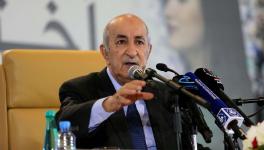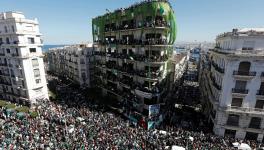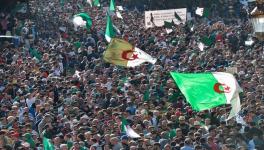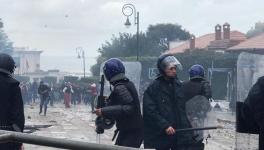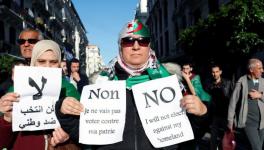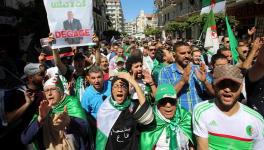A New President Elected in Algeria Amid Large-Scale Popular Boycott
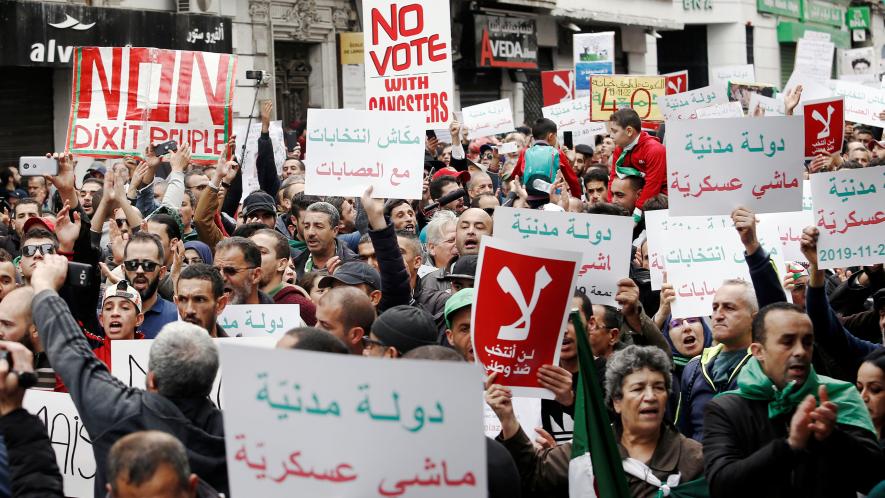
The elections held on December 12 were widely boycotted. Photo: Al-monitor
On December 12, Algeria held the first presidential elections since the resignation of President Abdelaziz Bouteflika in April after massive protests were held demanding he step down. Following Bouteflika’s resignation the protests continued and the people’s demands were broadened to call for the dismantling of the current political system. Protesters called for a boycott of the December 12 elections as the candidates were alleged to be associated with the previous regime. According to official figures, only 41% Algerians exercised their voting right in the heavily boycotted elections.
Official figures confirm that former prime minister Abdulmadjid Tebboune emerged with over 58% of the votes, while his closest rival, Abdelkader Bengrina, secured only 17%. Three more candidates – Ali Benflies, Azzedine Mihoubi, and Abdelaziz Belaid won 10.55%, 7.26% and 6.66% of the total votes.
Soon after the declaration of the results on December 13, fresh protests broke out across Algeria, denouncing the elections as a “sham”. Protesters alleged that the army, which they believe has been ruling the country indirectly for long, manipulated the votes in favor of Abdulmadjid.
74 year-old Abdulmadjid served under the Bouteflika regime in different positions, including as prime minister of Algeria in 2017, and is still considered as being close to the establishment. He now has a difficult task ahead for winning the popular support, at a time when the Algerian economy is under duress and the political system as a whole does not exude much confidence and legitimacy.
The weekly protests in the country which began in February of this year have received widespread support across social sectors.The movement leading the protests is against the widespread corruption in Algeria and has called for reforms to the existing political system. The protests continued throughout the election campaign as according to the protesters, no free and fair elections are possible under the current system.
The protests had initially erupted in February when Bouteflika revealed his intention to contest for a fifth term. His 20-year rule is considered responsible for the corruption, authoritarianism and the ailing economy of Algeria. In April, amid widespread protests, the army forced Bouteflika to resign.
Since then, the army and the National Liberation Front, the party which has ruled Algeria since its independence, refused the popular demands for systemic change and insisted on holding elections as a means for peaceful political transition. Attempts were also made to hold national elections in July. However, they were postponed twice due to the lack of “credible” candidates. The government took strong and repressive measures to suppress the voices of dissent and also arrested several prominent activists.
In this context, the army attempted to appease the masses by initiating a high-profile corruption case involving several politicians and officials who have been put on trial. The accused include two ex-prime ministers, Ahmed Ouyahia and Abdelmalek Sellal, and several other officials of the Bouteflika regime. However, opposition forces have claimed that these trials are a populist measure to “divide the people” and the move actually failed to garner any popular support for the current establishment.
Speaking to Peoples Dispatch, Redouane Benchikh, a journalist and social activist affiliated to the Socialist Workers’ Party of Algeria, questioned the legitimacy of the December 12 elections. He expressed hope that the popular pressure from the streets will continue irrespective of the election results, to bring major reforms in the system and facilitate the release of political prisoners, including members of his party.
Get the latest reports & analysis with people's perspective on Protests, movements & deep analytical videos, discussions of the current affairs in your Telegram app. Subscribe to NewsClick's Telegram channel & get Real-Time updates on stories, as they get published on our website.









